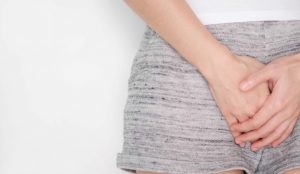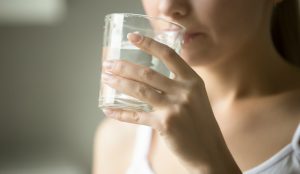When You Don’t Get Enough Hydration
 Hydration is vital. People can get very ill when they are dehydrated. The natural reaction when you have incontinence is to assume that to prevent it, you simply need to drink less (logic being that you’ll urinate less). It may seem counterintuitive, but it is not actually true. Your body will continue to dispose of bodily fluids including waste material in your urine. As you dehydrate, there is less water in your body and the bladder produces more concentrated urine; that can cause all sorts of problems including bladder irritation, problems going to the toilet, and sometimes even discomfort and infection – particularly UTI (urinary tract infection) which is signified with burning in the bladder and urinary tract.
Hydration is vital. People can get very ill when they are dehydrated. The natural reaction when you have incontinence is to assume that to prevent it, you simply need to drink less (logic being that you’ll urinate less). It may seem counterintuitive, but it is not actually true. Your body will continue to dispose of bodily fluids including waste material in your urine. As you dehydrate, there is less water in your body and the bladder produces more concentrated urine; that can cause all sorts of problems including bladder irritation, problems going to the toilet, and sometimes even discomfort and infection – particularly UTI (urinary tract infection) which is signified with burning in the bladder and urinary tract.
Every organ and system in the human body requires water in order to carry out their functions. When the body’s fluid levels are too low, it can create a myriad of health problems elsewhere in the body.
When You Drink the Wrong Things
When a person is first diagnosed with any of the forms of medical incontinence, their lifestyle is considered and they are advised to moderate the amount of caffeine and alcohol they ingest. These are diuretics and will make you go more frequently. You don’t have to give them up completely, but please try to be mindful of how much you ingest. If possible, try to limit the quantity and times you enjoy them.
Did you also know that carbonated drinks are problematic too? Aside from leaving you feeling bloated and uncomfortable in your stomach, intestines, bowel and bladder, they can overstimulate the bladder and cause more irritation.
A Note on Cranberry Juice
If the cause of your incontinence is a water infection, you’ve no doubt been told to drink cranberry juice-based drinks. Actual research evidence is inconclusive; although there is no actual harm in drinking this type of fruit juice and it may be beneficial to your health in other ways, you should not drink cranberry in lieu of medical advice.
What You Should Do
 Plan when to drink: If you are really concerned about how much and what you are drinking, there is no need to reduce water you drink but you can plan a way of actively managing your fluid intake. Plan to drink only at certain times of the day when you know you’re going to be close to a toilet. If you’re going on a long journey, don’t drink too much, stick to water, drink decaf in the morning and choose either orange juice or tea/coffee and not both.
Plan when to drink: If you are really concerned about how much and what you are drinking, there is no need to reduce water you drink but you can plan a way of actively managing your fluid intake. Plan to drink only at certain times of the day when you know you’re going to be close to a toilet. If you’re going on a long journey, don’t drink too much, stick to water, drink decaf in the morning and choose either orange juice or tea/coffee and not both.
Keep a bladder diary: To aid you in planning when to drink and when to hold back, it may help to develop a system of listing when your bladder is most active and when you normally drink most fluid. You can also look at how soon after drinking you tend to need to urinate. This will help you plan your mornings ahead of a day out and go easy at night to reduce nocturia.
Drink more water and less of everything else: Replace soft drinks, squash and juices with water. It’s calorie free and one of the healthiest things for your body. Plus, it doesn’t have all those extra substances that could irritate the bladder or make it play up.

Recent Comments